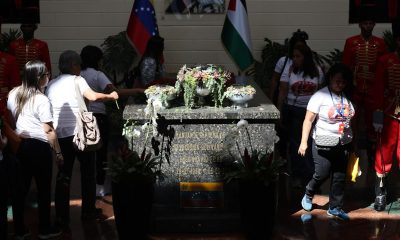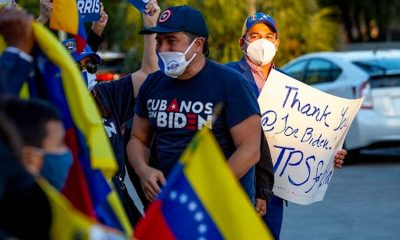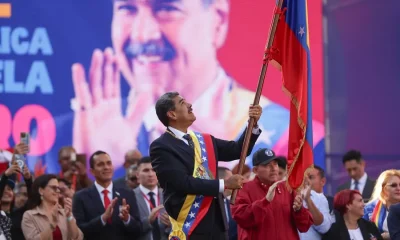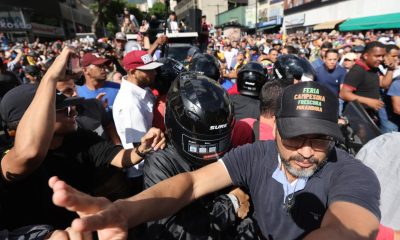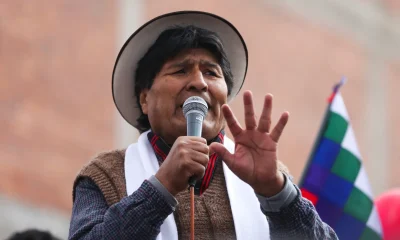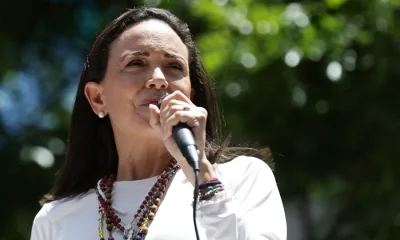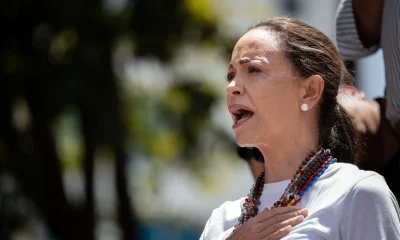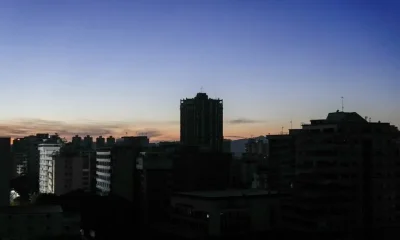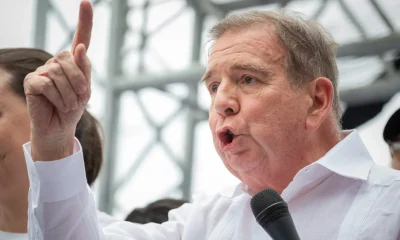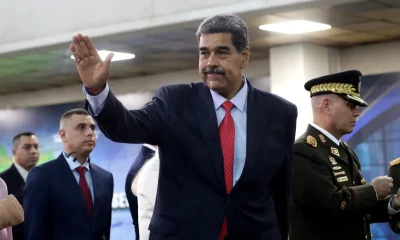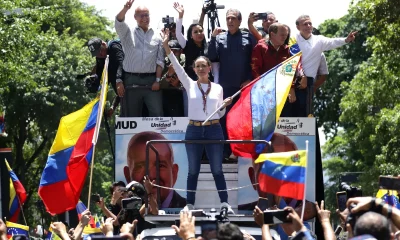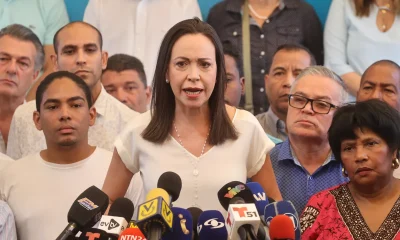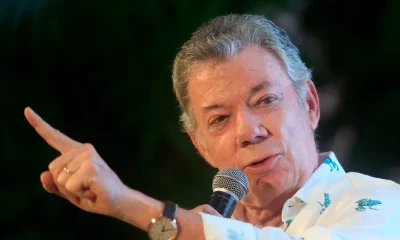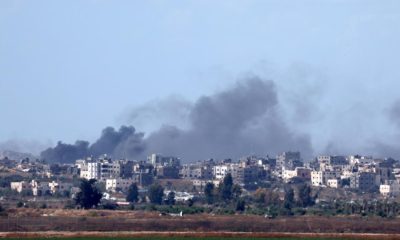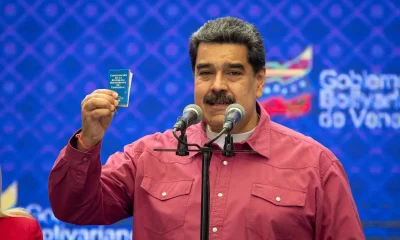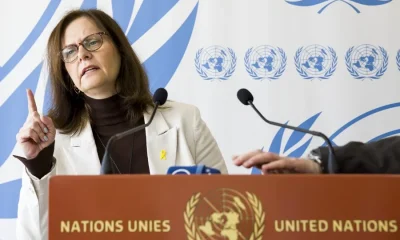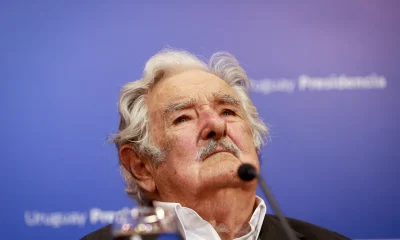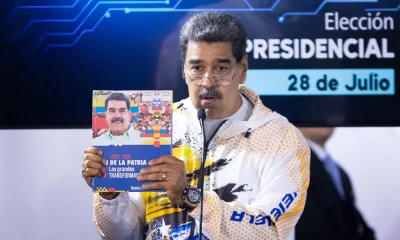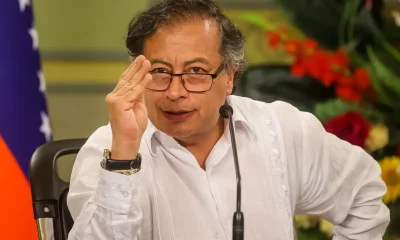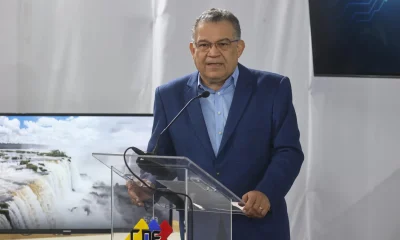International
UN mission for Venezuela: the Government is reactivating its most violent repression
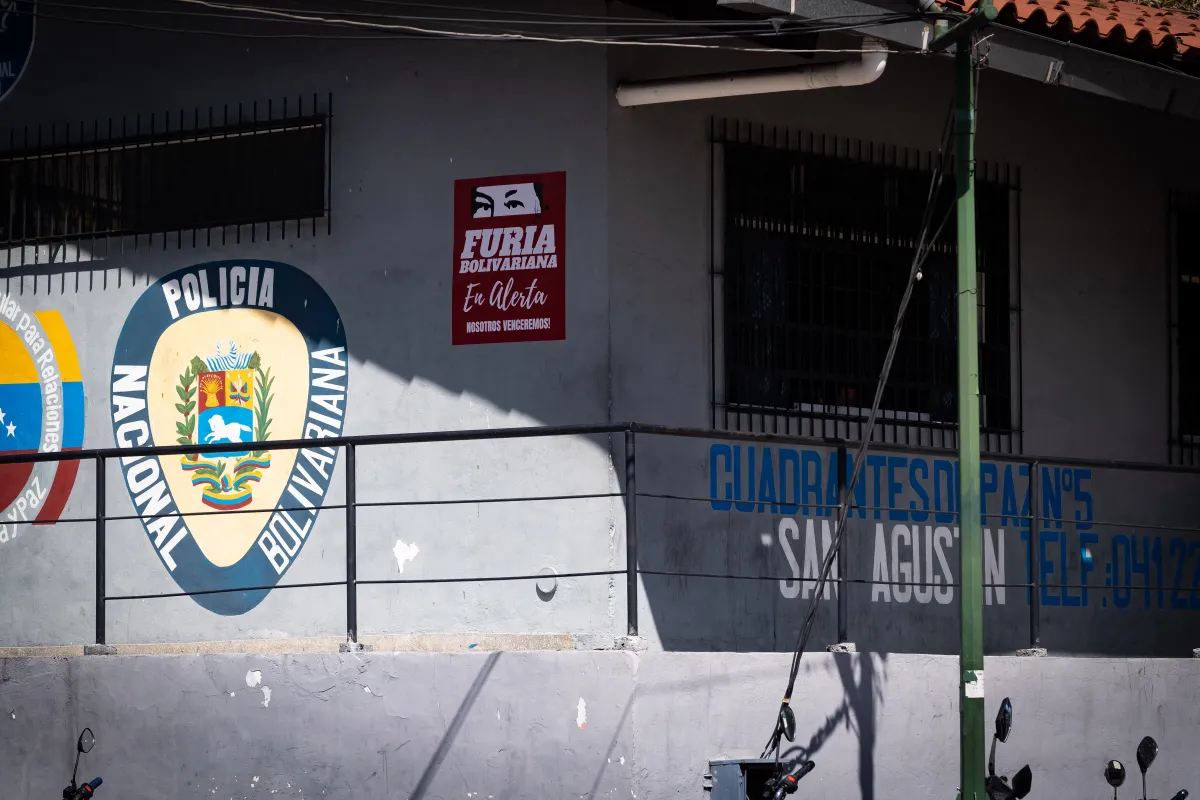
The Government of Venezuela is reactivating “the most violent form of repression,” with a new wave of arrests of opponents accused of alleged conspiracies such as the so-called Operation White Bracelet, the UN Independent International Mission for the country said on Wednesday.
The president of the mission, the Portuguese Marta Valiñas, presented to the United Nations Human Rights Council a new report on abuses committed by the Government of Nicolás Maduro in Venezuela since 2023, where she stressed that “the authorities invoke real or fictitious conspiracies to smedget, arrest and prosecute opponents or government critics.”
In this period, he said, we have moved from a less repressive phase of the opposition, in which Nicolás Maduro’s regime was limited to creating “a climate of fear and intimidation,” to a more violent period “that is activated to silence the voices of the opposition at any price.”
Valiñas highlighted in this sense that in January 2024 Maduro asked to “activate the Bolivarian Fury” after assuring that the previous year four conspiracies had been deactivated to assassinate him or organize coups d’état, and that the Attorney General’s Office then announced the aforementioned Operation White Bracelet, one of the alleged plots to end the life of the Venezuelan president.
In the context of the fight against this last conspiracy, 33 soldiers were degraded and expelled and different critics of the regime were arrested.
Among them, he recalled, campaign leaders of the Vente Venezuela party (the formation of the opposition leader María Corina Machado) and human rights defenders such as Tamara Suju, Sebastiana Barráez or the Spanish-Venezuelan Rocío San Miguel.
Valiñas stressed that San Miguel, arrested on February 9 at Maiquetía airport without a court order, was in unknown whereabouts for five days “until the authorities reported that she was detained in El Helicoide, one of the torture centers documented by the mission.”
He also stressed that that month, shortly after both the mission he presides over and the UN Office for Human Rights expressed their concern for San Miguel, the Venezuelan Government suspended the activities of the technical mission of the aforementioned office and gave its staff a period of 72 hours to leave the country.
The head of the mission completed by the Chilean Francisco Cox and the Argentine Patricia Tappatá added that together with San Miguel they have documented cases of 18 other women who remain detained under the accusation of being associated or involved in “conspiracies” to overthrow the Government.
Valiñas also recalled that in the six months analyzed by the mission, an agreement between the Government and the opposition was signed in Barbados so that it could participate in the elections of July 28 of this year, but subsequent actions highlighted the difficulties for its implementation.
The president of the mission gave as an example the suspension by the Supreme Court of Justice of the opposition primaries of October 22, won by a large majority by María Corina Machado, and the ratification by the same instance of justice of her 15-year political disqualification of 15 years, on January 26.
“These actions highlight the serious difficulties that exist in ensuring that the next presidential elections are carried out in accordance with the right to participate in public affairs provided for in the International Covenant on Civil and Political Rights,” Valiñas stressed.
It also drew attention to the arrest warrants against 14 people, including prominent opposition leaders such as Juan Guaidó and Leopoldo López, for their alleged connection with a conspiracy against the consultative referendum on Guayana Esequiba, held on December 3.
In the turn of reply, Venezuela’s delegation to the UN Human Rights Council in Geneva once again rejected the conclusions of the mission and even its legitimacy, created in 2019 by the council itself to investigate human rights abuses in the country.
“The United States, the greatest violator of rights in all history, the European Union and the failed Lima Group designed this mechanism (the mission) with the purpose of applying maximum pressure on Venezuela, manipulating the instruments and purposes of this Council,” said a representative of the delegation.
“They pretend to cover as absolute truths all the barbarities fabricated against Venezuela without verification or sustainable proof,” he added, alluding to the work of a mission that in his opinion “appeals to anonymous and even invented sources.”
International
Thousands rally nationwide against Trump’s threat to U.S. democracy

Thousands of protesters gathered on Saturday (April 19, 2025) in major cities like New York and Washington, as well as in small communities across the United States, in a second wave of demonstrations against President Donald Trump. The crowds denounced what they view as growing threats to the country’s democratic ideals.
In New York City, demonstrators of all ages rallied in front of the Public Library near Trump Tower, holding signs accusing the president of undermining democratic institutions and judicial independence.
Many protesters also criticized Trump’s hardline immigration policies, including mass deportations and raids targeting undocumented migrants.
“Democracy is in grave danger,” said Kathy Valyi, 73, the daughter of Holocaust survivors. She told AFP that the stories her parents shared about Adolf Hitler’s rise to power in 1930s Germany “are happening here now.”
In Washington, demonstrators voiced concern over what they see as Trump’s disregard for long-standing constitutional norms, such as the right to due process.
International
ACLU seeks emergency court order to stop venezuelan deportations under Wartime Law

The American Civil Liberties Union (ACLU) on Friday asked two federal judges to block the U.S. government under President Donald Trump from deporting any Venezuelan nationals detained in North Texas under a rarely used 18th-century wartime law, arguing that immigration officials appear to be moving forward with deportations despite Supreme Court-imposed limitations.
The ACLU has already filed lawsuits to stop the deportation of two Venezuelan men held at the Bluebonnet Detention Center, challenging the application of the Alien Enemies Act of 1798. The organization is now seeking a broader court order that would prevent the deportation of any immigrant in the region under that law.
In an emergency filing early Friday, the ACLU warned that immigration authorities were accusing other Venezuelan detainees of being members of the Tren de Aragua, a transnational criminal gang. These accusations, the ACLU argues, are being used to justify deportations under the wartime statute.
The Alien Enemies Act has only been invoked three times in U.S. history — most notably during World War II to detain Japanese-American civilians in internment camps. The Trump administration has claimed the law allows them to swiftly remove individuals identified as gang members, regardless of their immigration status.
The ACLU, together with Democracy Forward, filed legal actions aiming to suspend all deportations carried out under the law. Although the U.S. Supreme Court recently allowed deportations to resume, it unanimously ruled that they could only proceed if detainees are given a chance to present their cases in court and are granted “a reasonable amount of time” to challenge their pending removal.
International
Dominican ‘False Hero’ Arrested for Faking Role in Nightclub Collapse That Killed 231

A man identified as Rafael Rosario Mota falsely claimed to have rescued 12 people from the collapse of the Jet Set nightclub in Santo Domingo—a tragedy that left 231 people dead—but he was never at the scene.
Intelligence agents in the Dominican Republic arrested the 32-year-old man for pretending to be a hero who saved lives during the catastrophic incident, authorities announced.
Rosario Mota had been charging for media interviews in which he falsely claimed to have pulled survivors from the rubble after the nightclub’s roof collapsed in the early hours of April 8, during a concert by merengue singer Rubby Pérez, who was among those killed.
“He was never at the scene of the tragedy,” the police stated. The arrest took place just after he finished another interview on a digital platform, where he repeated his fabricated story in exchange for money as part of a “media tour” filled with manipulated information and invented testimonies.
“False hero!” read a message shared on the police force’s Instagram account alongside a short video of the suspect, in which he apologized: “I did it because I was paid. I ask forgiveness from the public and the authorities.”
-

 Central America5 days ago
Central America5 days agoPetro questions Ecuador’s vote, cites reports of military control and arrests
-

 International4 days ago
International4 days agoArsenal stun Real Madrid at the Bernabéu to reach Champions League semifinals
-

 International3 days ago
International3 days agoDominican ‘False Hero’ Arrested for Faking Role in Nightclub Collapse That Killed 231
-

 Central America3 days ago
Central America3 days agoNicaraguan Exiles to Mark 7th Anniversary of 2018 Protests with Global Commemorations
-

 International4 days ago
International4 days agoBogotá residents line up for yellow fever vaccine amid national alert
-

 International2 days ago
International2 days agoACLU seeks emergency court order to stop venezuelan deportations under Wartime Law
-

 International4 days ago
International4 days agoDeSantis’ immigration crackdown sparks alarm in Venezuelan Communities in Doral
-

 Central America2 days ago
Central America2 days agoUN complaint filed against Costa Rica over detention of migrant children
-

 International4 days ago
International4 days agoMexico refuses to restore ties with Ecuador while Noboa remains in office
-

 International15 hours ago
International15 hours agoThousands rally nationwide against Trump’s threat to U.S. democracy
-

 International5 days ago
International5 days agoColombia: Search continues for missing limb of italian scientist found dismembered
















